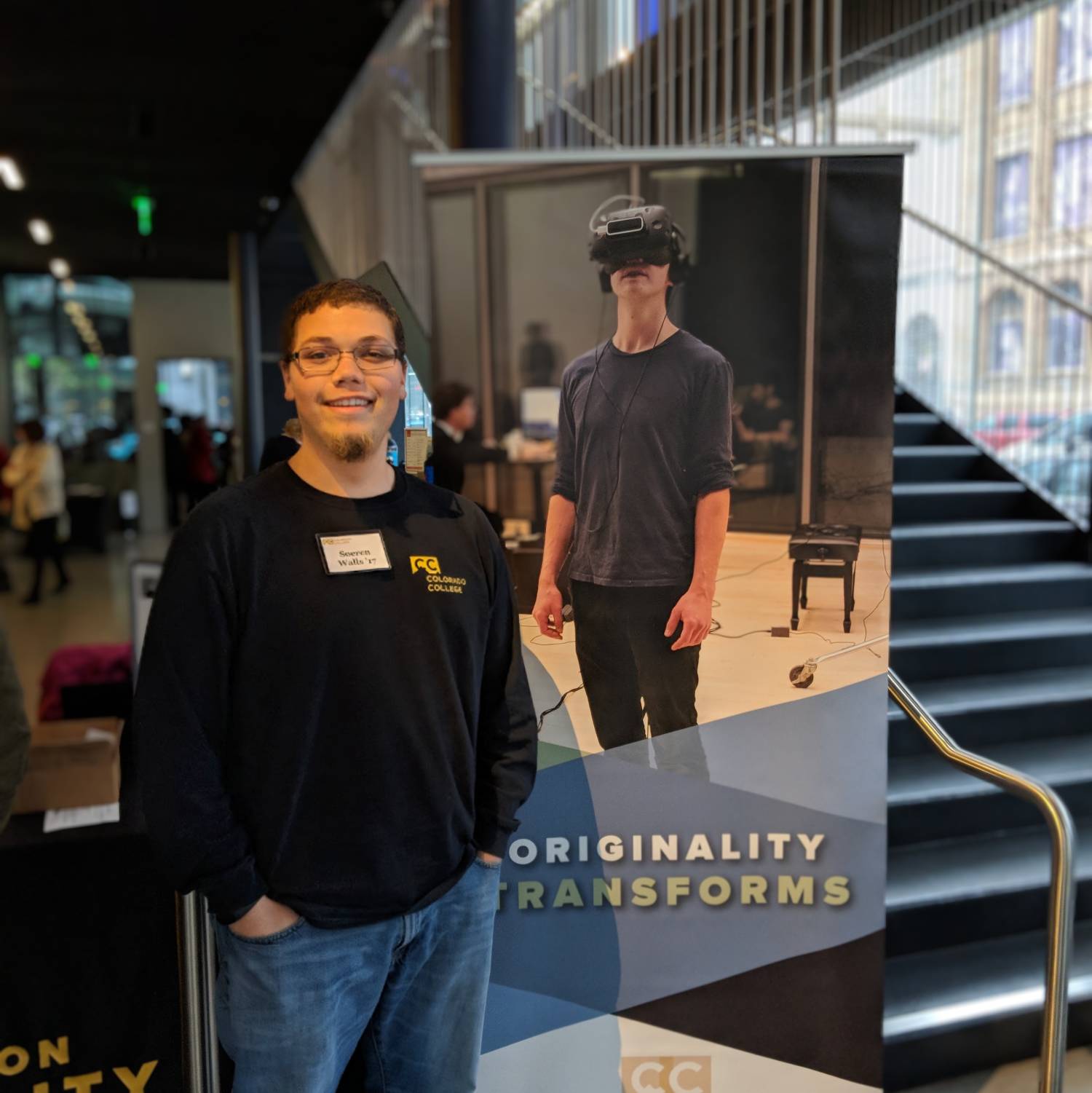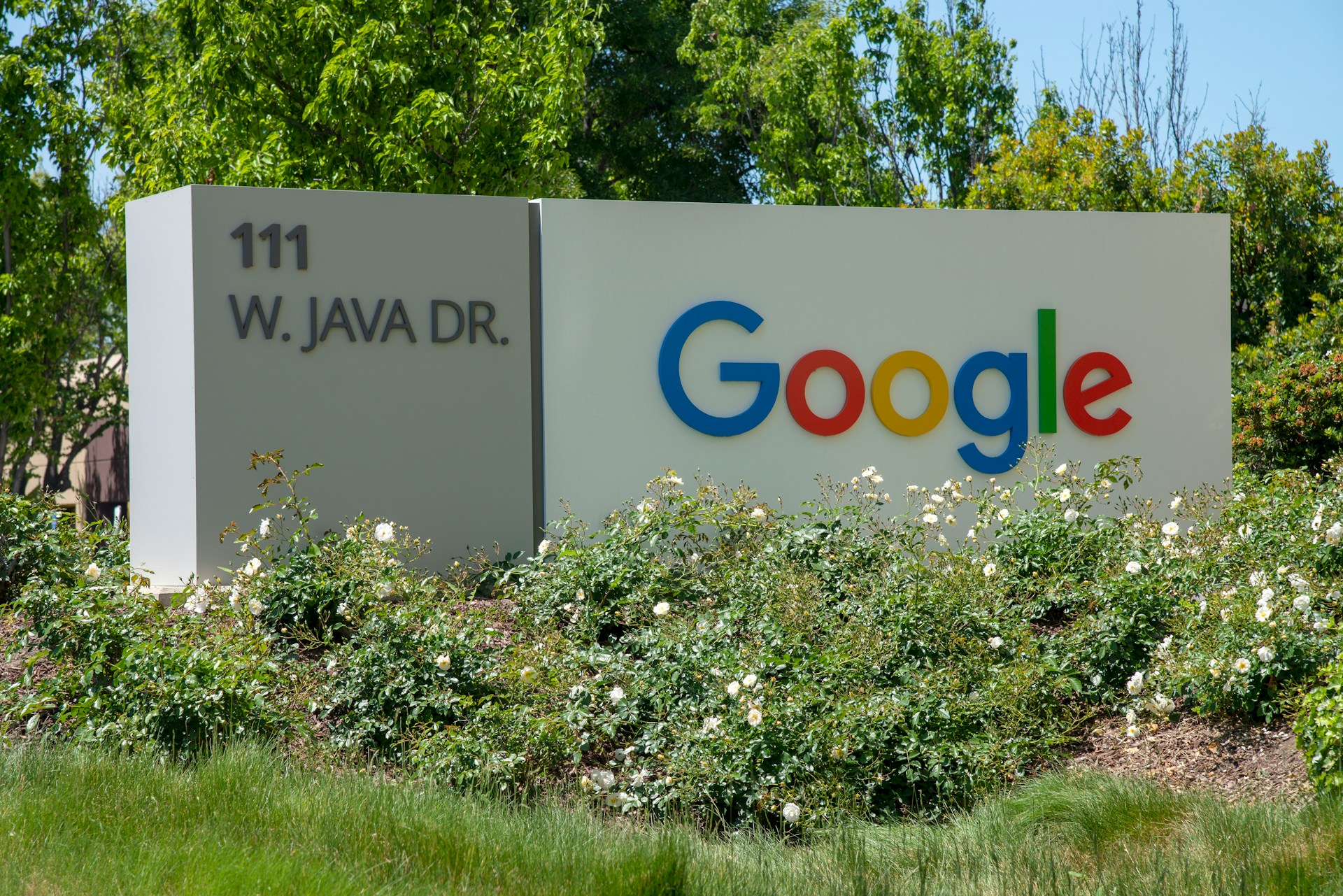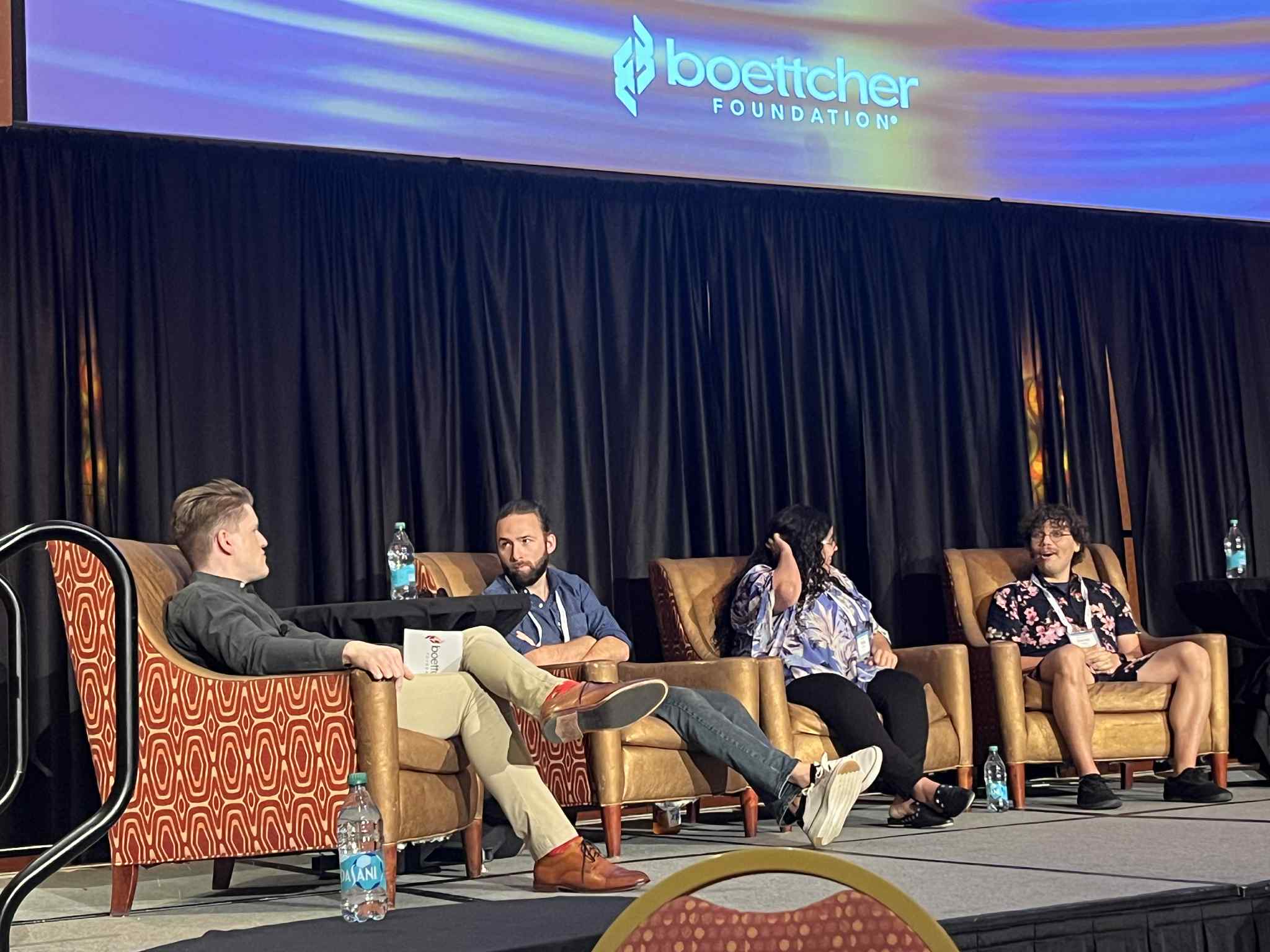






Life After College: What I Told a Room Full of 200 Students and New Grads
Disclaimer
The opinions expressed here are my own and not those of Google, Stash, or the Boettcher Foundation.
It was an absolute pleasure to speak at the Boettcher Scholars Experience on August 10, to a room full of around 200 current Scholars and recent graduates. The goal was to share what I wish I’d known before leaving college, offering insights into navigating the transition from high-achieving student to the “real world”. Here are the answers I gave, edited for clarity, and expanded with details I would’ve included, given more time.

The full panel, left to right: Jeremiah Light, Chip Bollendonk, Noha Kikhia, me, Zoe Drigot
My Journey: From Colorado College to Google and Beyond
Question
Briefly introduce yourself and provide a quick overview of your career journey.
I’m Soeren, a 2013 Boettcher Scholar from the School of Engineering and Biomedical Science at Pueblo County High School. I graduated with a BA in Computer Science and Theatre from Colorado College in May 2017 (go Tigers!). In September that same year, I joined Google’s Engineering Residency as an L2 Software Engineer. Over the next 7.5 years, I progressed to an L5 Senior Engineer / Tech Lead in Cloud’s Reliability Platform working to reduce toil across teams responsible for 90% of GCP’s ~$80 billion in annual revenue.
Then in March this year, I left to embark on a new adventure, joining a startup called Stash. As an early engineer, I’ve been entrusted to help architect and build the infrastructure and systems Stash needs to revolutionize direct-to-consumer payments for game developers.
The Hard Truths: Challenges After College
Question
Transitioning out of college can be challenging for many reasons, including navigating the shift from being a high-achieving student to being “new” or “unknown” in the real world. What was hard about that transition for you?
Transitioning out of college presented its own unique set of challenges. One of the hardest was learning to trust myself. I realized I had to stop putting so much weight into the opinions and advice from external sources – whether they were influencers, role models, my friends, or even trusted family members and Boettcher mentors. It didn’t require a grand spiritual journey, but something simpler: mindfulness. I had to learn to recognize my thoughts, understand their origins, and then consciously choose which ones to believe. This practice made it significantly easier to sift through the noise and trust my inner wisdom.
Another difficulty was truly understanding why I was making certain life decisions. Part of me, for instance, wanted to reject the corporate world and pursue an acting career. Yet, I ended up accepting a job at a massive tech corporation and stayed there for over seven years. For a while, I thought I had abandoned that artistic part of myself. But then, I took the time to explore my core personal values, and I discovered that financial security was incredibly important to me. This understanding helped me accept my past decisions and find new ways to embrace all aspects of my identity both in and out of work.
Pro tip
It may sound cliché, but I strongly recommend spending a couple hours to take a free online quiz that lets you pick between pairs of values. For example, I took this one and got the results with my top 5 values:
- Inner harmony
- Security
- Health
- Discipline
- Curiosity
It even included a free graphic that I saved as my phone wallpaper.
Staying Connected: Purpose and Community
Question
How have you stayed connected to a sense of purpose or community since leaving school?
One way I stayed connected to community and my artistic side was by joining Alphabeat, Google’s a capella group. This allowed me to continue my passion for making music and participate in community events. We sang for the public on the streets of Mountain View, and performed for over 500 people at the Fox Theatre, which led to a professional studio recording and a feature on a Spotify album.
Now that I’m back in Colorado, I also recently reconnected with La Puente, a local non-profit in Alamosa that’s close to my heart. Earlier this year, I had the opportunity to dedicate a week of my time (and Google’s money through its Volunteer Time Off benefit) to improving their website performance.
My connection with La Puente actually started through a Boettcher-organized event during my college years. It’s a cherished memory for many reasons, among those being that I volunteered alongside 2013 Scholar Corey Baron, who tragically died last year.
Lessons Learned: Something I Undervalued in College
Question
Answer one or the other: What do you feel you overvalued in college that turned out not to matter much after graduation? What do you feel you undervalued in college that turned out to be important later on?

I’ll focus on what I undervalued: physical health, and learning personal finance. In college, sleep and exercise were rare activities. Since then, prioritizing my physical health paid dividends in nearly every aspect of life: efficiency at work, greater satisfaction from hobbies, and mental fortitude in stressful times. For me, it’s still a work in progress, but the most impactful change was prioritizing sleep. Sleep is the foundation of everything else.
Aside from sleeping more, one of the best things I ever did was audit Professor Jim Parco’s “Personal Finance” winter block class at Colorado College. That said, I genuinely wish I took it for full credit. Its practicality later in life was unmatched; even auditing it for two weeks made it the most useful course I ever took. I believe it should be a mandatory course for every student.
Here are some key takeaways from that course:
Disclaimer
I’m not an accountant or a financial advisor. This is not advice.
- Think of your monthly budget as a fixed number, not based on your income
- Save 30% of your income until you have an emergency cash fund with enough to cover 6-12 months of expenses
- Use credit cards like a debit card (don’t spend money you don’t have)
- Pay off all high-interest debts before you invest in stocks
- Use the “snowball method” to pay off debt: prioritize paying the debt with the highest interest rate first
- Learn the difference between 401k and IRA accounts, and Roth vs Traditional
- Always contribute enough to max out your employer’s 401k contribution
- Invest in ETFs (index funds), don’t gamble with individual company stocks
- Don’t be an emotional investor; hold on to your stocks (or buy more) when they go down in value
- A diversified portfolio of stocks, bonds and cash protects against localized recessions
The Ripple Effect: Sharing my Struggles
Question
Our theme for this year at Boettcher is “Ripple Effect.” Can you share an example of a small decision or action you took after graduation that ended up having a bigger impact than you expected - on your career, your community, or someone else?
For this year’s Boettcher theme, “Ripple Effect,” I shared an example of a small action I took after graduation that had a surprisingly large impact. Even though I left Google 3 months into this year, I was determined to finish all my annual commitments before my last day (classic overachiever, I know!). One of those was the citizenship requirement, a non-work related contribution that went on every Googler’s annual performance review. To check that off the list, I spent several late nights and weekends writing a document that detailed my struggles with eating disorders and how I overcame them. I posted it internally on a company-wide email list, thinking if it helped one person, it would be worth it.
To my astonishment, within the week before I left, the document received over 600 views, and dozens of people reached out to me via email and messages, expressing their gratitude for my vulnerability and telling me how helpful it was for them or their family members. This experience profoundly reinforced the lesson: never underestimate the power of sharing your journey. Your personal story, even when it involves struggles, can create meaningful ripples in the lives of others.
Bonus Question: How do you find time for Hobbies while Working or Studying?
Pick one thing. Don’t pressure yourself into thinking you should be doing everything at once. To prevent decision paralysis, pick one thing, prioritize it, and make it happen.
Special thanks to Floyd Pierce and Katie Kramer from the Boettcher Foundation for inviting me and hosting the event, and to 2010 Scholar Jeremiah Light for moderating the panel. It was a truly enriching experience. Let me know in the comments if you resonated with any of this, or what advice you would give the next generation of students as they embark on their own exciting journeys!


